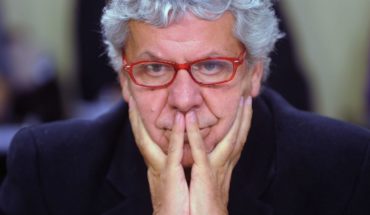Although Chile has managed to carry out a good vaccination process, we are experiencing an alarming increase in the number of contagions, the use of critical beds and deaths from coronavirus. This phenomenon raises the need to reflect on how our country is handling the pandemic and, in that task, philosophy could become a good tool.
As Slavoj ‘i’ek argues lucidly, philosophy has a modest objective: it does not seek to solve problems, but seeks to rethink them. This means that where a problem is evident, philosophy doesn’t have much to tell us. However, when the problematic is obscure, philosophy has the virtue of asking the right questions to illuminate what we do not see clearly. This is particularly evident in the case of a pandemic: the role of philosophy is not, by the way, solving the problem of increased contagions, because this is the task of science and politics, but it can help us understand, for example, why a country that is making such good progress in the vaccination process does not work the same way when it comes to appeasing viral progress.
When we look at the way the pandemic is governed in our country, there are two phenomena that draw attention: the first is the inconsistency of the Step-by-Step Plan. Constant modifications and improvisations, usually criticized by experts, mean that the model has no preventive capacity, because it does not anticipate reality, but always goes one step behind it. Eloquent examples of this are changes in the phases of the Plan – for example, allowing the opening of cinemas and gyms at a stage where this was previously prohibited – holiday permits with no control capacity, the absence of mitigation measures for daily crowds on public transport and return to face-to-face classes in schools and schools long before the faculty can develop immunity. Needless to say, permanent improvisation is the opposite of planning.
The second phenomenon is the rapid and effective vaccination process. While it is clear that this is excellent news, vaccination has become the flagship product of a government with few successes and is touted as if it were a marketing campaign. It is common for us to see the health authority congratulate itself on the daily account because Chile is at the top of global inoculation. However, the tone changes when it comes to increased mortality or ICU bed occupancy. It is important to stress that the development of vaccination in the country has been exemplary, but the way it is communicated reveals to us that there appears to be awareness that this is the only measure consistent in the midst of the viral threat.
We have, then, improvisation in the containment of the virus and, at the same time, an overflowing optimism in the vaccination process. This is where the need to ask the right question becomes clear: are we fighting the virus or are we improvising waiting for the vaccine to take effect and achieve the long-awaited group immunity? By the way, philosophy won’t stop here and, like Paul Valéry’s sea, it will constantly return to this question and open up new questions: betting on the vaccine while improvising measures that don’t stop the chain of contagion means risking people’s lives. Is this morally acceptable? Will it be possible and/or advisable to rely exclusively on inoculation? True, science has shown us a light at the end of the tunnel, but what will be the consequences of rushing to the exit without worrying enough about how we will leave the darkness?
The content poured into this opinion column is the sole responsibility of its author, and does not necessarily reflect the editorial line or position of El Mostrador.
translated from Spanish: Planning or improvisation? The Step-by-Step in the Eyes of Philosophy
March 24, 2021 |





